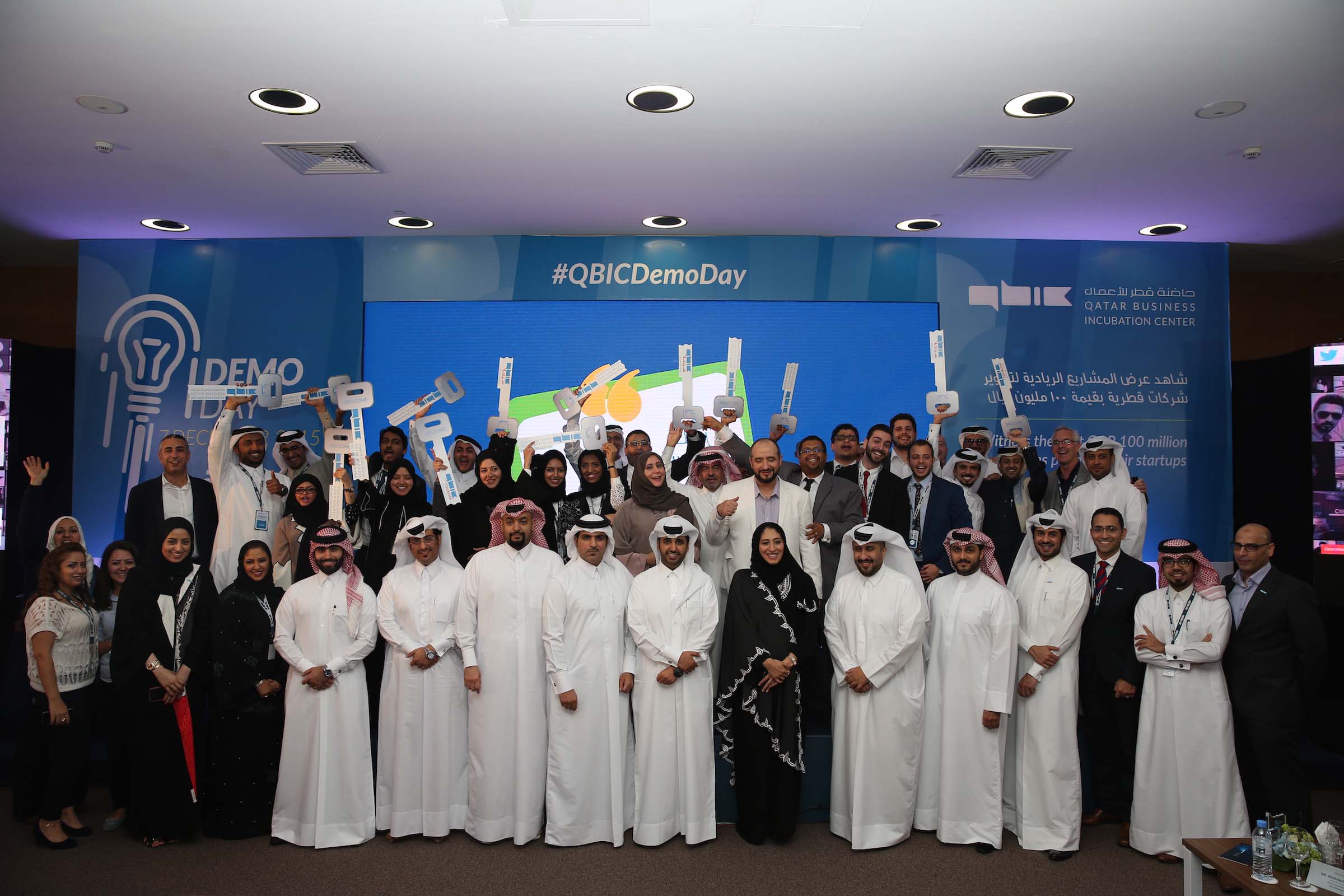
More than a dozen budding entrepreneurs were promised some QR1.4 million in seed money this week after successfully pitching their startup ideas to the Qatar Business Incubation Center (QBIC).
Aiming to create Qatar’s next QR100 million company, people pitched business plans for vegetable hydroponics kits, sign language training and a variety of mobile apps in a competition on Monday for funding and space in one of the country’s largest startup incubators.
In total, 14 of the 16 early stage firms were accepted into QBIC, and each promised QR100,000 in seed funding to help develop their ideas, which also included products such as horse bedding made of recycled materials and a “smart table” for charging and boosting the signal of mobile devices, among others.
In addition to the funding, the companies will receive mentorship, coaching and workspace to develop their businesses over the next 12 to 24 months.
Demo Day
To qualify, all the startups – which were either founded by Qataris or had an active Qatari partner – first had to apply for a spot in QBIC’s LeanStartup Program, a 10-week course designed to test the viability of their business ideas through conversations with potential customers and suppliers.
That culminated with QBIC’s fourth Demo Day, where startups had to present their product, market research and financial projections to an auditorium full of judges, fellow entrepreneurs and other onlookers.

“It was thrilling … There was (much) more energy in the room than I expected,” said Maryam Ahmed Al Semaitt, moments after her startup, Warsha, was selected.
Co-founded by Al Semaitt and Nawar Al-Mutlaq, Warsha is a mobile fabrication lab containing tools such as laser cutters and 3D printers.
Dubbed “a playground for creators,” it’s aimed at designers, artists and other entrepreneurs creating physical items such as iPhone cases.
Al Semaitt told Doha News that their initial plan was for a large lab containing a wide assortment of equipment.
But after going through the lean startup program, that concept evolved into a smaller facility that would be easier to launch and could be transported around Qatar to reach different customers such as clusters of artists at Katara.
The pressure Al Semaitt said she felt while making her pitch was no accident, according to Khaled Sadeddin, QBIC’s director of incubation.
He said that one goal of Demo Day was to help startup founders overcome their stage fright.
“Once you put your foot on this entrepreneurship path, the biggest fear is selling your idea to other people,” he told Doha News. “Once you’ve done that, you feel that you’ve achieved something.”
Fostering startup culture
QBIC’s demo day comes as Qatar tries to encourage more residents to start their own businesses and bolster the country’s private sector, which remains heavily dependent on the oil and gas sectors as well as government-funded construction projects.

Entrepreneurship can be a tough sell in a country where the public sector attracts many Qataris with the promise of stable and well-paying careers, Sadeddin conceded.
To help overcome this challenge, he highlighted how startups provide an opportunity to be one’s own boss and leave a lasting legacy.
QBIC’s programs, meanwhile, reduce the failure rate of new businesses by pairing entrepreneurs with experienced mentors and coaches as well as helping startups find funding and subsidies for services such as legal help and bookkeeping.
“Our role is to enable and foster a new generation of Qatari businessmen and women,” he said.
QBIC is one of several centers in the country supporting startups, which also includes ictQatar’s Digital Incubation Center as well as the Qatar Science and Technology Park.
Pitches
Among the other companies headed into QBIC’s incubation program is Smart Korsy, a firm co-founded by Qassim Al Ghanim, a government engineer turned serial entrepreneur, Mohamed Azab and Raseel Musliarakath.
They’ve designed a small table that doubles as a charging station as well as a wireless signal amplifier. While restaurants and cafes are one possible market, the table is also equipped with a solar panel so it can be taken camping.

Another company that made the cut is Just Grow, which combines an aquarium and plant holder to create a small home hydroponic garden for growing herbs and small vegetables.
“All a customer has to do is feed the fish and wait for their produce … to grow,” said company founder Ali Al-Jail in his pitch.
Several software firms applied for space in a separate tourism-focused incubator at QBIC that’s supported by the Qatar Tourism Authority, which previously said it wants to jointly spend between $40 billion and $45 billion (QR145.66 billion to QR163.87 billion) with the private sector on new products and programs over the coming years.
These include restaurant reservation system Anajay (Arabic for “On my way”), group events promotional firm ChillinQatar as well as Kashta, which aims to run organized tours of Qatar’s less-known ecological and cultural sites.
“We want visitors to be our ambassadors, and talk about our heritage when they return home,” Kashta’s Kholoud Mohammad said in her pitch.
Thoughts?







